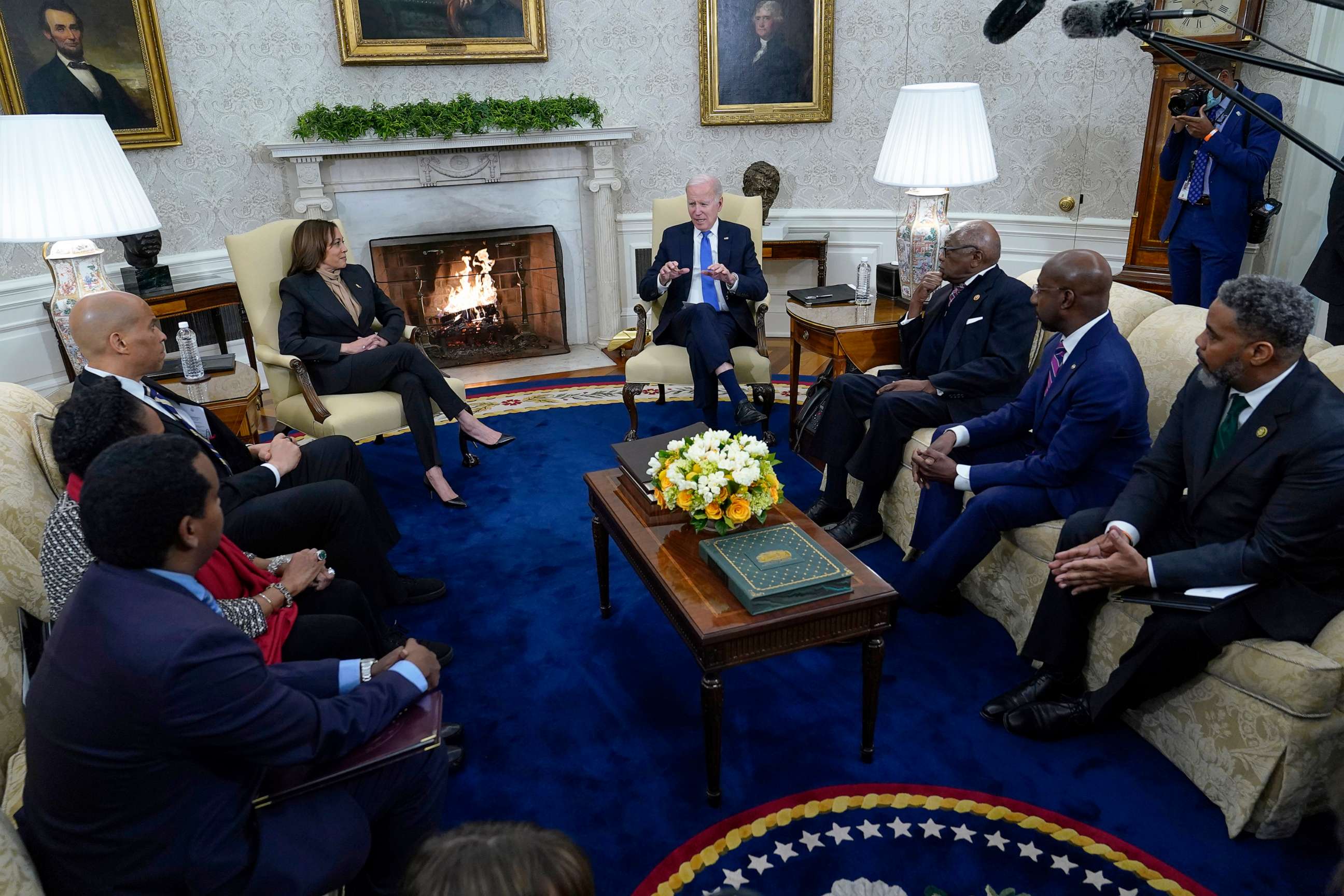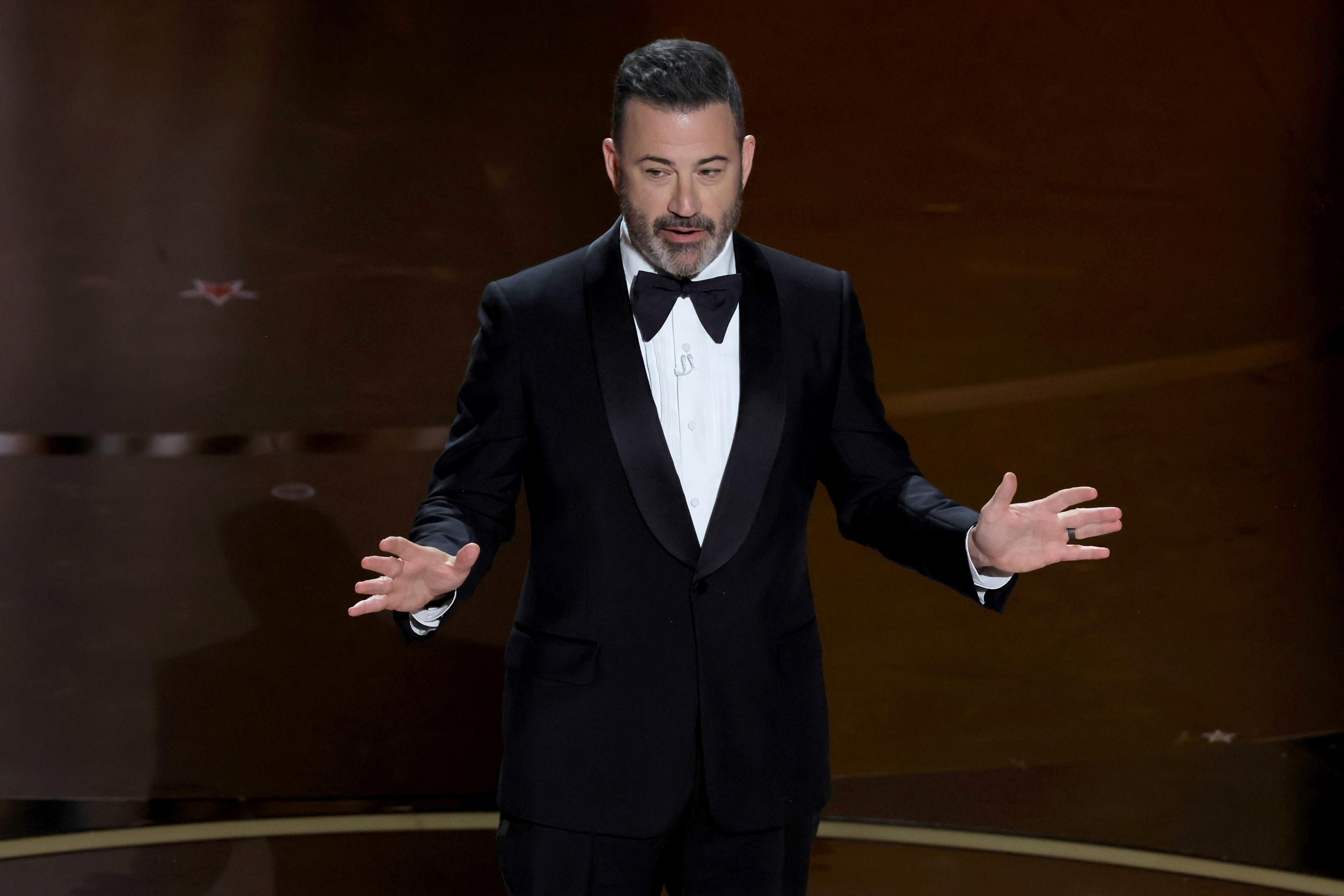
The Congressional Black Caucus (CBC) has voiced strong opposition to a resolution honoring Charlie Kirk, founder of Turning Point USA, signaling a deep divide over the intent and impact of such recognition. The CBC contends that the resolution, purportedly aimed at fostering unity, fails to address the concerns and historical context relevant to the Black community.
This move underscores the ongoing tensions surrounding political figures and organizations perceived as divisive, particularly concerning issues of race, social justice, and historical narratives. The CBC’s stance highlights a commitment to ensuring that any efforts toward reconciliation must be rooted in genuine understanding and accountability.
President Biden meets with members of the Congressional Black Caucus. The CBC’s recent opposition to a resolution honoring Charlie Kirk emphasizes their commitment to addressing issues of race and social justice with genuine understanding and accountability.
The Core of the Dispute
At the heart of the controversy is the perception that honoring Charlie Kirk, given his organization’s history and public statements, would undermine the CBC’s efforts to promote equality and address systemic racism. The Caucus believes that such a resolution would send the wrong message, particularly to young Black Americans.
Divergent Views on Unity
The debate centers on what constitutes genuine unity. For the CBC, unity cannot be achieved without acknowledging and addressing historical injustices and ongoing disparities. They argue that honoring individuals who have, in their view, contributed to division and misinformation is counterproductive to this goal.
The CBC believes that true reconciliation requires a commitment to dismantling systemic barriers and promoting policies that uplift marginalized communities. Without this foundation, any attempt at unity is seen as superficial and ultimately ineffective.
Concerns About Historical Context
A key concern for the CBC is the historical context surrounding discussions of race and equality in America. They emphasize the importance of understanding the legacy of slavery, segregation, and discrimination in shaping contemporary society. Ignoring this history, they argue, perpetuates harmful narratives and hinders progress.
The CBC views the resolution honoring Charlie Kirk as a potential erasure of this history, or at least a downplaying of its significance. They believe that it is crucial to center the experiences and perspectives of Black Americans in any conversation about unity and reconciliation.
Impact on Young Black Americans
The CBC is particularly concerned about the impact of this resolution on young Black Americans. They believe that it could send a message that their struggles and concerns are not being taken seriously. This could lead to disillusionment and a sense of betrayal, undermining efforts to engage young people in the political process.
The Caucus is committed to empowering young Black Americans and providing them with the resources and support they need to succeed. They believe that honoring figures who have been critical of these efforts would be a disservice to this mission.
Reactions and Responses
The CBC’s opposition has sparked a range of reactions, from support from civil rights organizations to criticism from conservative commentators. The debate highlights the deep divisions within American society over issues of race, politics, and historical memory.
Support from Civil Rights Groups
Many civil rights organizations have voiced their support for the CBC’s stance, echoing their concerns about the impact of the resolution on the Black community. These groups argue that honoring Charlie Kirk would be a step backward in the fight for racial justice and equality.
These organizations emphasize the importance of holding individuals and institutions accountable for their actions and statements, particularly when they perpetuate harmful stereotypes or contribute to division. They believe that the CBC is taking a principled stand in defense of these values.
Criticism from Conservative Commentators
Conservative commentators have criticized the CBC’s opposition, arguing that it is an attempt to silence dissenting voices and stifle free speech. They contend that Charlie Kirk has a right to express his views, regardless of whether they are popular or controversial.
These commentators often accuse the CBC of engaging in identity politics and promoting a divisive agenda. They argue that the focus should be on finding common ground and working together to solve problems, rather than dwelling on past grievances.
Political Implications
The controversy surrounding the resolution has significant political implications, particularly in a deeply polarized environment. It underscores the challenges of finding common ground on issues of race and social justice, and it highlights the importance of engaging in respectful and constructive dialogue.
The CBC’s stance could galvanize support among its base and strengthen its position as a leading voice for the Black community. However, it could also alienate some moderate voters and further deepen the divide between the left and the right.
The Broader Context
This dispute occurs within a broader context of ongoing debates about race, identity, and historical memory in America. These debates are playing out in classrooms, boardrooms, and political arenas across the country.
The Role of Historical Memory
The role of historical memory is central to these debates. Different groups have different perspectives on the past, and these perspectives often shape their views on contemporary issues. The CBC’s opposition to the resolution reflects its commitment to preserving and promoting a particular understanding of American history, one that centers the experiences and perspectives of Black Americans.
This understanding of history emphasizes the legacy of slavery, segregation, and discrimination, and it highlights the ongoing struggle for racial justice and equality. The CBC believes that it is crucial to confront this history honestly and openly in order to move forward as a nation.
The Future of Race Relations
The controversy surrounding the resolution also raises questions about the future of race relations in America. Can different groups find common ground and work together to build a more just and equitable society? Or will divisions continue to deepen and polarization intensify?
The CBC believes that progress is possible, but it requires a commitment to truth, reconciliation, and justice. It requires acknowledging the past, addressing present-day inequalities, and working together to create a future where all Americans have the opportunity to thrive.
The Importance of Dialogue
Ultimately, the CBC’s opposition to the resolution underscores the importance of dialogue and engagement. It is crucial to create spaces where different perspectives can be shared and debated respectfully. Only through open and honest conversation can we hope to bridge divides and build a more united society.
The CBC is committed to engaging in this dialogue and working with others to find common ground. However, it will not compromise on its core values of justice, equality, and accountability.
Key Takeaways
- The Congressional Black Caucus opposes a resolution honoring Charlie Kirk.
- The CBC believes the resolution undermines efforts to promote equality.
- Concerns exist about the resolution’s impact on young Black Americans.
- Civil rights groups support the CBC’s stance.
- Conservative commentators criticize the CBC’s opposition.
FAQ
Why is the CBC opposing the resolution?
The CBC believes honoring Charlie Kirk would undermine their efforts to promote equality and address systemic racism, sending the wrong message to young Black Americans.
What are the CBC’s concerns about historical context?
The CBC emphasizes the importance of understanding the legacy of slavery, segregation, and discrimination in shaping contemporary society, viewing the resolution as a potential erasure of this history.
How do civil rights groups view the situation?
Many civil rights organizations support the CBC’s stance, arguing that honoring Charlie Kirk would be a step backward in the fight for racial justice and equality.
What is the conservative perspective on this issue?
Conservative commentators criticize the CBC’s opposition, arguing that it is an attempt to silence dissenting voices and stifle free speech.
The Congressional Black Caucus’s firm stance against the resolution honoring Charlie Kirk highlights the ongoing struggle to reconcile differing perspectives on race, history, and justice in America. It underscores the importance of ensuring that any efforts toward unity are rooted in genuine understanding, accountability, and a commitment to dismantling systemic barriers. The path forward requires continued dialogue and a willingness to confront uncomfortable truths, with the ultimate goal of creating a more just and equitable society for all. Consider exploring resources from organizations dedicated to promoting racial justice to further understand the complexities of this issue and how you can contribute to positive change.

